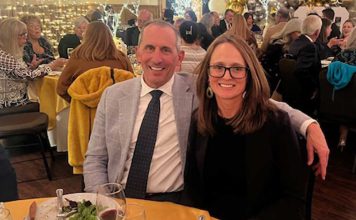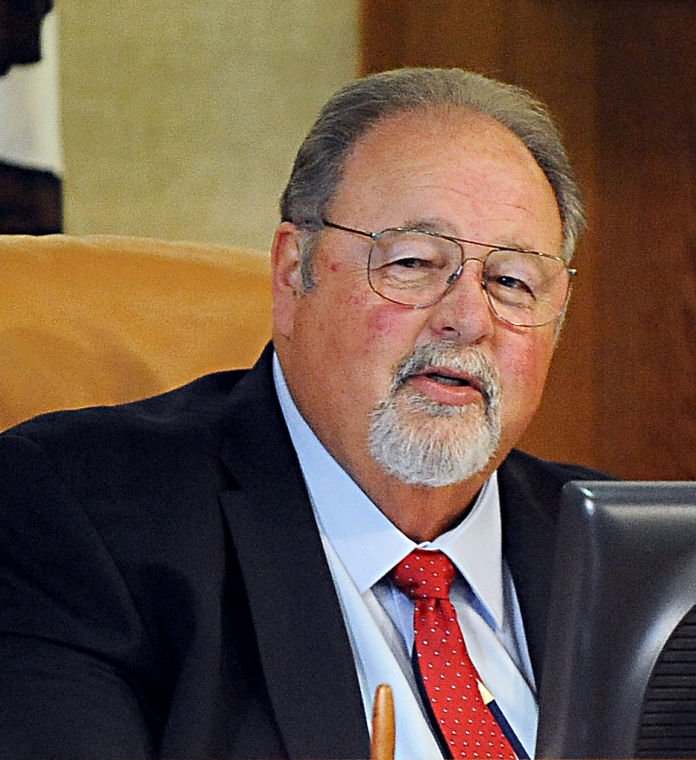From garlic to Google, Gilroy wants to be known for its
technology as much as for its staple crop.
From garlic to Google, Gilroy wants to be known for its technology as much as for its staple crop.
With efforts ranging from silly to serious, towns and cities across the nation are vying for Google’s attention, hoping to become a test site for ultra-high-speed Internet service that the search engine giant plans to pioneer.
Some cities, like Topeka, Kan., have offered to change their name to Google. Elsewhere, people have produced videos meant to support their city’s efforts, such as a guy in Greenville, S. C., who shaved “Google” into his hair.
Although Gilroy hasn’t rolled out anything as enticing as garlic ice cream in its attempt to court Google, city staffers are working hard to complete the 26-page application by the end of the week, said Joe Kline, public information officer for the City of Gilroy.
“We’re not into the weird gimmicks,” Kline said, referring to some of the unusual stunts other communities are pulling in an effort to get Google’s attention.
Instead, the city is encouraging residents to go to Google’s Web site and nominate Gilroy to host Google’s new project.
“It looks like Google’s looking for a guinea pig,” Kline said, adding that Gilroy would be happy to be the company’s test subject. “We don’t want to miss out on any opportunity that may be worth going after.”
Wherever Google ends up, it’s planning to launch an experiment that is designed to make Internet access better and faster for everyone. They plan to test ultra-high-speed broadband networks in one or more trial locations across the country.
This network will deliver Internet speeds at more than 1 gigabit per second – more than 1,000 faster than what most Americans have access to today – through fiber-to-the-home connections. This service will be offered at a competitive price in selected cities of at least 50,000 and potentially up to 500,000 people.
The company’s proposed network of gigabit-per-second fiber optics is expected to attract a flood of high-tech companies eager to see what such a network can do.
Google touts that capability in a variety of ways, such as allowing doctors to reach out to rural patients via the Web, helping students participate in more interactive global distance learning and enabling viewers to download high definition movies in minutes.
The high speeds will allow users to “enable applications we can’t even imagine,” a Google spokesman said, comparing the projected gains to how people would have thought about hosting streaming video on their computers before the Internet even existed. “We’re hoping to see those kinds of jumps.”
As for cost, local leaders say there won’t be any, at least on the city’s end. Google has agreed to build the networks and then charge nominal fees for service.
The City of Gilroy is well-situated geographically and technically to compete for a test network, Kline said. Looking ahead to the proposed high speed rail project, which has plans to run through Gilroy with a station in town, Gilroy is on the verge of becoming a transportation hub and, with the help of Google, could become a communications hub as well, Kline said.
So far, Google has received more than a dozen submissions from communities across the country, and thousands of submissions from people who are excited about ultra-high-speed Internet access, according to the Google spokesman.
When choosing a community to serve, Google is looking for towns that are willing to work with Google to achieve its goal of experimenting with new ways to help make Internet access better and faster for everyone. They plan to announce a target community or target communities later this year.
Christa Lawler of the Duluth News Tribune, Minn.; David Slade of The Post and Courier in Charleston, S.C.; and James Dowd of The Commercial Appeal in Memphis, Tenn., contributed to this article.
How to help Gilroy court Google
If you want to support the city’s efforts to get high-speed, fiber optic cables in Gilroy at no charge, go to www.google.com/appserve/fiberrfi, then click on the “Get involved” button on the right side. On the next page, click on “Nominate your community” and fill out the short form on the next page.
Gimmicks for Google
– In Greenville, S.C., residents tried to attract Google’s attention by forming a human chain down Main Street while holding glow sticks.
– In Duluth, Minn., City Councilor Patrick Boyle asked Mayor Don Ness if the city had authority to rename Lake Superior to “Lake Google.” In a parody of a news conference, another resident declared that all first born children in Duluth will be named Google or Googlette Fiber (they can keep their last names, he added).
– In Durham, N.C., the city’s newspaper reported last week that the tourism bureau was planning to get thousands of people to spell out “We Want Google” on the field at the Durham Bulls Athletic Park.
– In Topeka, Kan., city officials changed the town’s name to Google, Kan., for a month.















